Fennel (Foeniculum vulgare) is a flavorful and aromatic herb native to the Mediterranean region and widely used in culinary practices around the world. Beyond its culinary applications, fennel has been esteemed for its medicinal properties for centuries. In recent years, scientific research has begun to uncover the plethora of health benefits associated with consuming fennel. This article delves into the scientific evidence supporting the various health advantages of fennel consumption.
 Antioxidant Properties
Antioxidant Properties
Fennel is rich in antioxidants, such as flavonoids, phenolic compounds, and vitamin C, which play a crucial role in neutralizing harmful free radicals in the body. Studies have demonstrated the potent antioxidant activity of fennel extracts, which can help reduce oxidative stress and lower the risk of chronic diseases, including cardiovascular diseases and certain types of cancer.
One notable feature is its high concentration of volatile oils, such as anethole and limonene, which contribute to its antioxidant activity. These volatile oils not only provide fennel with its distinctive aroma and flavor but also exhibit potent antioxidant properties that help protect cells and tissues from damage caused by free radicals.
Furthermore, fennel contains a diverse array of phytochemicals, including polyphenols and terpenes, which exert synergistic antioxidant effects. These phytochemical compounds work together to scavenge free radicals, inhibit oxidative processes, and promote cellular health. Research suggests that the combination of flavonoids, phenolic compounds, and other bioactive constituents in fennel contributes to its superior antioxidant capacity compared to other herbs and vegetables.
Moreover, the bioavailability of antioxidants in fennel is enhanced by its unique chemical composition and structural characteristics. Fennel’s fibrous texture and water-soluble components facilitate the release and absorption of antioxidants in the digestive tract, ensuring optimal bioavailability and utilization by the body. This efficient delivery system allows fennel to exert its protective effects against oxidative damage throughout the body, promoting overall health and well-being.
 Digestive Health
Digestive Health
Traditionally, fennel has been used to alleviate digestive ailments such as bloating, indigestion, and flatulence. Its carminative properties help relax the digestive tract and reduce gas formation. Moreover, compounds found in fennel, such as anethole and estragole, have been shown to possess anti-inflammatory and anti-spasmodic effects, contributing to improved gastrointestinal health.
In addition to its carminative, anti-inflammatory, and anti-spasmodic effects, fennel contains soluble fiber, which plays a crucial role in promoting digestive health. The fiber in fennel acts as a prebiotic, nourishing the beneficial bacteria in the gut and supporting a healthy balance of intestinal flora. This, in turn, aids in proper digestion and nutrient absorption while reducing the risk of gastrointestinal disorders such as constipation and irritable bowel syndrome (IBS).
Furthermore, fennel exhibits mild laxative properties, gently stimulating bowel movements and promoting regularity. Unlike harsher laxatives, fennel’s natural laxative effect is gentle on the digestive system, making it a preferred choice for individuals seeking relief from occasional constipation without causing discomfort or dependency. Incorporating fennel into the diet can help maintain optimal bowel function and support overall digestive wellness.
 Potential Anti-Cancer Effects
Potential Anti-Cancer Effects
Several studies have investigated the potential anti-cancer properties of fennel and its constituents. Research suggests that fennel contains compounds with anti-proliferative and apoptosis-inducing effects on cancer cells, particularly in breast, liver, and prostate cancers. Additionally, fennel extracts have shown promise in inhibiting the growth and metastasis of cancer cells, although further clinical research is warranted to elucidate its mechanisms of action.
What sets fennel apart in its potential anti-cancer properties is its rich array of bioactive compounds, including flavonoids, phenolic compounds, and volatile oils. These compounds, such as anethole and estragole, have demonstrated remarkable anti-cancer activities by targeting specific pathways involved in cancer cell growth and proliferation. Fennel’s diverse phytochemical profile not only provides a potent arsenal against cancer cells but also offers a multifaceted approach to combating tumorigenesis and metastasis.
Furthermore, emerging evidence suggests that fennel may enhance the efficacy of conventional cancer therapies when used in combination. Studies have shown synergistic effects between fennel extracts and chemotherapy drugs, resulting in improved anti-cancer outcomes and reduced drug resistance. This synergy underscores the potential of fennel as a complementary therapy in cancer treatment regimens, offering new avenues for enhancing patient outcomes and minimizing adverse effects.
In addition to its therapeutic effects, fennel may also play a preventive role in cancer development by exerting protective effects against carcinogenesis. Its antioxidant properties help neutralize free radicals and oxidative stress, which are implicated in the initiation and progression of cancer. By scavenging harmful reactive oxygen species, fennel may help prevent DNA damage and mutations that contribute to tumorigenesis, highlighting its potential as a dietary intervention for cancer prevention.
 Anti-inflammatory Effects
Anti-inflammatory Effects
Chronic inflammation is associated with the development of various diseases, including arthritis, diabetes, and cardiovascular disorders. Fennel possesses anti-inflammatory properties attributed to its bioactive compounds, such as flavonoids and volatile oils. These compounds help modulate inflammatory pathways, thereby reducing inflammation and potentially mitigating the risk of inflammatory diseases.
Unlike some pharmaceutical anti-inflammatory agents, fennel’s natural compounds exhibit a gentle action on the body, minimizing the risk of adverse side effects commonly associated with conventional medications. Moreover, fennel’s multifaceted approach to inflammation management involves not only suppressing inflammatory mediators but also promoting the body’s natural healing processes. By enhancing the production of anti-inflammatory cytokines and antioxidants, fennel helps restore balance to the immune system and supports tissue repair and regeneration.
Furthermore, fennel’s anti-inflammatory benefits are complemented by its broad spectrum of bioactive compounds, each contributing to its overall therapeutic effect. For instance, anethole, one of the primary components of fennel oil, has been shown to inhibit inflammatory enzymes and reduce the production of pro-inflammatory cytokines. Meanwhile, flavonoids such as quercetin and kaempferol exert potent antioxidant and anti-inflammatory effects, protecting cells from oxidative damage and modulating inflammatory responses.
 Regulation of Blood Sugar Levels
Regulation of Blood Sugar Levels
Preliminary studies suggest that fennel may exert beneficial effects on blood sugar levels and insulin sensitivity. Animal studies have demonstrated that fennel extracts can enhance glucose uptake by cells and improve insulin secretion, indicating its potential as a natural remedy for diabetes management. However, more research is needed to validate these findings in human subjects.
One of the fascinating aspects of fennel’s potential role in blood sugar regulation lies in its rich array of bioactive compounds. Fennel contains various phytochemicals such as polyphenols, flavonoids, and terpenoids, which are known to possess antioxidant and anti-inflammatory properties. These compounds may work synergistically to modulate glucose metabolism and insulin sensitivity, offering a multifaceted approach to managing blood sugar levels.
Insulin resistance, a key feature of type 2 diabetes, occurs when cells become less responsive to the effects of insulin, leading to elevated blood sugar levels. Emerging evidence suggests that certain components of fennel may help mitigate insulin resistance by enhancing insulin signaling pathways and improving cellular glucose uptake. By addressing underlying mechanisms of insulin resistance, fennel could potentially play a role in improving metabolic health and reducing the risk of diabetes complications.
 Respiratory Health
Respiratory Health
Fennel contains volatile oils with expectorant properties that can help alleviate respiratory issues such as coughs, bronchitis, and congestion. These oils help to loosen phlegm and mucus, making it easier to expel from the respiratory tract and providing relief from respiratory discomfort.
In addition to its expectorant properties, fennel exhibits anti-inflammatory effects that can further support respiratory health. The compounds found in fennel, such as anethole and cineole, have been shown to reduce inflammation in the respiratory tract, soothing irritated tissues and promoting easier breathing. This anti-inflammatory action can be particularly beneficial for individuals suffering from conditions like asthma or chronic obstructive pulmonary disease (COPD), where inflammation plays a key role in respiratory symptoms.
Furthermore, fennel is rich in antioxidants, including flavonoids and vitamin C, which can help protect the respiratory system from oxidative damage caused by environmental pollutants and toxins. By neutralizing free radicals and reducing oxidative stress, fennel supports the overall health and function of the respiratory tract, enhancing its ability to defend against infections and respiratory ailments.
Moreover, fennel’s natural antispasmodic properties help relax the muscles of the respiratory tract, easing coughing spasms and promoting smoother breathing. This muscle-relaxing effect can provide relief from conditions such as whooping cough or spasmodic bronchitis, where persistent coughing can be debilitating. By calming respiratory muscle contractions, fennel helps to alleviate discomfort and improve respiratory function, allowing individuals to breathe more easily and comfortably.
 Bone Health
Bone Health
Fennel is a good source of calcium, magnesium, and phosphorus, essential minerals that contribute to bone health and density. Regular consumption of fennel may help prevent bone disorders such as osteoporosis and promote overall bone strength and integrity.
One remarkable aspect of fennel’s contribution to bone health lies in its bioavailability of minerals. Unlike some other sources of calcium, magnesium, and phosphorus, the minerals present in fennel are readily absorbed by the body, thanks to the presence of certain compounds that enhance their bioavailability. This means that the minerals from fennel are efficiently utilized by the body to support bone growth and maintenance, maximizing the benefits of regular consumption for bone health.
In addition to its mineral content, fennel boasts anti-inflammatory properties that further support bone health. Chronic inflammation can contribute to the development of bone disorders such as osteoporosis by promoting bone resorption and inhibiting bone formation. Fennel contains compounds with anti-inflammatory effects, which help reduce inflammation in the body and may consequently protect against bone loss and deterioration.
Furthermore, fennel provides essential nutrients that support collagen synthesis, a process crucial for maintaining bone strength and flexibility. Collagen is the main protein found in bones, providing structural support and resilience. Fennel contains vitamin C, which is necessary for collagen production, as well as other nutrients such as copper and manganese that play roles in collagen synthesis. By supporting collagen formation, fennel contributes to the overall integrity and resilience of bone tissue, enhancing its ability to withstand stress and maintain optimal function.
Immune Support
The immune-boosting properties of fennel can be attributed to its rich content of vitamins and antioxidants. Fennel helps strengthen the immune system, making the body more resilient to infections and diseases. Additionally, its anti-inflammatory effects may aid in reducing inflammation associated with immune-related conditions.
Moreover, fennel contains a distinct blend of phytonutrients, including anethole, limonene, and quercetin, which contribute to its immune-boosting effects. Anethole, the primary component responsible for fennel’s licorice-like flavor, exhibits antimicrobial properties that can help combat harmful pathogens and protect against infections. Limonene, found in the essential oil of fennel, possesses potent antioxidant and anti-inflammatory properties, further bolstering the immune system’s defense mechanisms.
In addition to its nutritional profile, fennel contains fiber-rich compounds known as oligosaccharides, which serve as prebiotics that nourish beneficial gut bacteria. Emerging research suggests that a healthy balance of gut microbiota plays a crucial role in immune function, as the gut microbiome interacts with the immune system to regulate inflammatory responses and protect against pathogens. By promoting a healthy gut environment, fennel supports the intricate interplay between the microbiome and the immune system, enhancing overall immune resilience.
Furthermore, fennel’s role in immune support extends beyond its nutritional and biochemical properties. Its aromatic compounds, released when fennel is consumed or used in aromatherapy, can have mood-boosting and stress-reducing effects. Chronic stress has been linked to weakened immune function, as it suppresses immune responses and increases susceptibility to infections. By promoting relaxation and reducing stress levels, fennel contributes to a holistic approach to immune support, addressing both physiological and psychological aspects of well-being.
Skin Health
Fennel possesses antimicrobial and anti-inflammatory properties that can benefit skin health. Applied topically or consumed orally, fennel may help alleviate various skin conditions such as acne, eczema, and dermatitis. Its antioxidant content also aids in protecting the skin from oxidative damage and premature aging.
Moreover, fennel contains essential vitamins and minerals, including vitamin C, vitamin E, and potassium, which play crucial roles in promoting skin elasticity, hydration, and regeneration. Vitamin C, in particular, stimulates collagen production, aiding in the repair of damaged skin tissues and reducing the appearance of fine lines and wrinkles. Additionally, potassium helps maintain the skin’s moisture balance, preventing dryness and enhancing overall hydration.
One of the unique aspects of fennel is its rich content of phytoestrogens, plant-based compounds that mimic the effects of estrogen in the body. These phytoestrogens may contribute to fennel’s beneficial effects on skin health by promoting hormonal balance and regulating sebum production. By modulating hormone levels, fennel may help reduce the severity of hormonal acne and other skin conditions exacerbated by hormonal imbalances.
Furthermore, fennel’s natural astringent properties make it effective in tightening and toning the skin, leading to a more youthful and radiant complexion. When used topically, fennel extracts or essential oil can help minimize the appearance of pores and improve skin texture. Regular use of fennel-based skincare products or homemade remedies may result in smoother, firmer, and healthier-looking skin.
Eye Health
Fennel is a good source of vitamin A, a nutrient essential for maintaining healthy vision. Vitamin A is known for its role in preserving the integrity of the cornea, preventing night blindness, and reducing the risk of age-related macular degeneration (AMD). Including fennel in your diet can contribute to overall eye health and function.
In addition to being a rich source of vitamin A, fennel offers unique properties that further enhance its benefits for eye health. One of the remarkable aspects of fennel is its high concentration of antioxidants, including flavonoids, carotenoids, and vitamin C. These antioxidants help protect the eyes from oxidative stress caused by free radicals, which can lead to cellular damage and contribute to various eye conditions.
Moreover, fennel contains specific compounds such as lutein and zeaxanthin, which are known as macular pigments. These pigments accumulate in the macula of the retina, where they act as natural filters to absorb harmful blue light and protect against damage from ultraviolet radiation. By incorporating fennel into your diet, you can boost the levels of these essential nutrients, providing added protection against age-related macular degeneration and other degenerative eye diseases.
Furthermore, fennel’s anti-inflammatory properties play a vital role in supporting eye health. Chronic inflammation is implicated in the development and progression of many eye conditions, including cataracts, glaucoma, and diabetic retinopathy. Fennel’s anti-inflammatory compounds help reduce inflammation within the eye tissues, thereby mitigating the risk of these inflammatory eye disorders and preserving visual function.
Menstrual Health
In traditional medicine, fennel has been used to alleviate menstrual symptoms such as cramps and discomfort. Its anti-inflammatory and antispasmodic properties may help relax the muscles of the uterus, reducing menstrual pain and promoting a more comfortable menstrual cycle. Some studies suggest that fennel extract may be effective in managing primary dysmenorrhea.
Moreover, fennel contains compounds such as anethole and estragole, which exhibit estrogenic properties. These compounds may help regulate hormonal imbalances commonly associated with menstrual irregularities, such as heavy bleeding or irregular cycles. By supporting hormonal balance, fennel can contribute to a smoother menstrual cycle and alleviate symptoms related to hormonal fluctuations.
Furthermore, fennel’s natural diuretic properties can help reduce bloating and water retention commonly experienced during menstruation. By promoting urine production and eliminating excess fluid retention, fennel may alleviate feelings of abdominal discomfort and contribute to a more comfortable menstrual experience. Its gentle diuretic action also supports kidney function and reduces the risk of urinary tract infections, providing comprehensive support for menstrual health and well-being.
Antimicrobial Activity
Fennel exhibits antimicrobial properties that can help inhibit the growth of harmful bacteria, fungi, and viruses. The essential oils present in fennel have been shown to possess broad-spectrum antimicrobial activity against various pathogens, making it a valuable natural remedy for combating infections and promoting overall health.
In addition to its broad-spectrum antimicrobial activity, fennel possesses unique properties that enhance its effectiveness as a natural remedy against infections. One such property is its ability to disrupt bacterial biofilms, which are complex communities of microorganisms that adhere to surfaces and are notoriously resistant to antibiotics. Fennel’s biofilm-disrupting effects help to weaken bacterial colonies, making them more susceptible to antimicrobial agents and immune responses.
Furthermore, fennel contains compounds such as anethole, fenchone, and limonene, which exhibit synergistic antimicrobial effects when combined. These compounds work together to target multiple pathways involved in microbial growth and survival, making it more difficult for pathogens to develop resistance. This synergistic action not only enhances the efficacy of fennel against a wide range of microbes but also reduces the likelihood of resistance emerging over time.
Moreover, fennel’s antimicrobial properties extend beyond its essential oils to other bioactive compounds found in the plant, including flavonoids, phenolic acids, and polysaccharides. These compounds exert additional antimicrobial effects by interfering with microbial cell membranes, inhibiting enzyme activity, and disrupting microbial DNA replication. By targeting multiple cellular processes, fennel offers a comprehensive approach to combating microbial infections and promoting overall health.
Nutritional Value of Fennel (per 100 grams)
- Energy: 31 kcal
- Protein: 1.24 g
- Fat: 0.20 g
- Saturated Fat: 0.009 g
- Monounsaturated Fat: 0.036 g
- Polyunsaturated Fat: 0.090 g
- Carbohydrates: 7.30 g
- Dietary Fiber: 3.1 g
- Sugars: 3.93 g
- Vitamins:
- Vitamin A: 47 µg
- Vitamin C: 12 mg
- Vitamin E: 0.02 mg
- Vitamin K: 62.8 µg
- Thiamine (Vitamin B1): 0.01 mg
- Riboflavin (Vitamin B2): 0.032 mg
- Niacin (Vitamin B3): 0.64 mg
- Vitamin B6: 0.047 mg
- Folate (Vitamin B9): 27 µg
- Minerals:
- Calcium: 49 mg
- Iron: 0.73 mg
- Magnesium: 17 mg
- Phosphorus: 50 mg
- Potassium: 414 mg
- Sodium: 52 mg
- Zinc: 0.20 mg
- Copper: 0.066 mg
- Manganese: 0.73 mg
- Selenium: 0.6 µg
Note: Nutritional values are approximate and may vary depending on factors such as variety, cultivation methods, and processing.
Conclusion
In conclusion, the consumption of fennel offers a myriad of health benefits supported by scientific evidence. From its antioxidant and anti-inflammatory properties to its digestive and potential anti-cancer effects, fennel stands out as a valuable addition to a healthy diet. Nevertheless, further research, including clinical trials, is essential to fully understand the mechanisms underlying these benefits and establish optimal doses for therapeutic use.
 Welcome to a vibrant and refreshing salad bursting with flavors and textures – Jamie Oliver’s Sliced Fennel, Orange & Almond Salad. This delightful dish combines the crispness of fresh fennel, the citrusy brightness of oranges, and the nutty crunch of almonds, creating a perfect balance of sweet, tangy, and savory notes. Simple yet elegant, this salad is not only a feast for the taste buds but also a feast for the eyes, with its vibrant colors and artistic presentation. Whether you’re looking for a light and healthy side dish or a standalone meal bursting with Mediterranean flair, this recipe is sure to impress.
Welcome to a vibrant and refreshing salad bursting with flavors and textures – Jamie Oliver’s Sliced Fennel, Orange & Almond Salad. This delightful dish combines the crispness of fresh fennel, the citrusy brightness of oranges, and the nutty crunch of almonds, creating a perfect balance of sweet, tangy, and savory notes. Simple yet elegant, this salad is not only a feast for the taste buds but also a feast for the eyes, with its vibrant colors and artistic presentation. Whether you’re looking for a light and healthy side dish or a standalone meal bursting with Mediterranean flair, this recipe is sure to impress.
Contraindications for consumption of fennel
1. Allergic Reactions: Individuals with known allergies to plants in the Apiaceae family, such as celery, carrots, and parsley, may experience allergic reactions to fennel. Symptoms may include itching, swelling, hives, or difficulty breathing. It’s important to exercise caution and consult with a healthcare professional if you have a known allergy.
2. Pregnancy and Breastfeeding: Fennel contains compounds that may mimic estrogen, which could potentially affect hormone levels. Pregnant and breastfeeding women are advised to consume fennel in moderation or avoid it altogether, as its effects on fetal development and lactation are not well understood.
3. Blood Clotting Disorders: Fennel contains a compound called estragole, which may have blood-thinning properties. Individuals with blood clotting disorders or those taking anticoagulant medications (blood thinners) should use caution when consuming fennel, as it may increase the risk of bleeding.
4. Medication Interactions: Fennel may interact with certain medications, including blood thinners, estrogen-based medications, and medications metabolized by the liver. It’s important to consult with a healthcare provider before consuming fennel if you are taking any medications to avoid potential interactions.
5. Endometriosis: Some sources suggest that fennel may worsen symptoms of endometriosis, a condition characterized by the growth of tissue outside the uterus. Fennel contains compounds that may stimulate estrogen production, which could exacerbate symptoms in individuals with endometriosis.
6. Hormonal Imbalances: Due to its estrogenic properties, excessive consumption of fennel may disrupt hormone balance, particularly in individuals with hormone-sensitive conditions such as breast cancer, ovarian cancer, or uterine fibroids. It’s advisable to moderate intake and consult with a healthcare professional if you have concerns about hormonal imbalances.
7. Photosensitivity: Some individuals may experience increased sensitivity to sunlight (photosensitivity) after consuming fennel or applying fennel oil topically. This reaction may result in skin irritation, redness, or blistering when exposed to sunlight. Precaution should be taken, especially in individuals prone to photosensitivity reactions.
Fascinating Facts About Fennel
- Ancient Symbolism:
In ancient times, fennel held significant symbolism and cultural importance. It was revered by ancient Greeks and Romans for its association with longevity, courage, and strength. Fennel stalks were used as a symbol of victory in Greek athletic games, while Roman soldiers believed that consuming fennel would impart courage and fortitude on the battlefield.
- Natural Insect Repellent:
Fennel possesses natural insect-repellent properties, making it a valuable addition to organic gardening practices. Planting fennel in gardens can help deter unwanted pests such as aphids, slugs, and caterpillars, while attracting beneficial insects like ladybugs and bees. Additionally, fennel’s aromatic foliage adds beauty and fragrance to outdoor spaces.
- Horticultural Wonder:
Fennel is not only valued for its culinary and medicinal properties but also for its ornamental appeal in gardens. With its striking appearance and delicate foliage, fennel adds visual interest to landscapes and herb gardens. Varieties such as bronze fennel, with its reddish-purple leaves, are prized for their aesthetic beauty and culinary versatility.
- Historical Love Potion:
In medieval times, fennel was believed to have aphrodisiac properties and was used in love potions and charms. It was thought to stimulate desire and enhance romantic feelings, leading to its association with love and passion in folklore and herbal traditions.
- Ancient Burial Rites:
Fennel holds a place in ancient burial rites and rituals. In ancient Greece, fennel stalks were placed on the graves of the deceased as a symbol of remembrance and to ward off evil spirits. Additionally, fennel seeds were often included in funeral offerings as a token of protection and purification for the journey to the afterlife.
- Magical Folklore:
In European folklore, fennel was believed to have magical properties and was used in various rituals and spells. It was thought to ward off evil spirits, provide protection against witchcraft, and promote prosperity and good luck. Fennel seeds were sometimes hung above doorways or placed under pillows for these purposes.
- Herbal Divination:
Fennel was used in herbal divination practices to foretell the future and gain insights into one’s fate. In ancient times, fennel seeds were cast onto hot coals, and the crackling sounds they produced were interpreted as messages from the spirit world. This practice, known as “fennel oracle,” was believed to reveal answers to questions or provide guidance in decision-making.
- Symbol of Strength and Endurance:
In Greek mythology, Prometheus is said to have stolen fire from the gods and concealed it within a hollow fennel stalk, which he then used to bring fire to humanity. This mythological tale underscores fennel’s association with strength, endurance, and the transformative power of knowledge.
- Culinary Tradition:
In some Mediterranean cultures, fennel is traditionally consumed as a post-meal digestive aid. After meals, a bowl of fennel seeds is often offered to guests to chew on as a natural breath freshener and digestive aid. This practice not only promotes digestion but also symbolizes hospitality and friendship.
- Fishy Attraction:
Believe it or not, fennel has a unique ability to attract certain species of fish. Fishermen have long used fennel as a bait enhancer, as its aromatic scent is particularly appealing to fish such as carp and tench. In some fishing communities, fennel-infused baits are prized for their effectiveness in attracting fish.
- Fennel Fiber Art:
In some cultures, fennel stalks are used for crafting intricate fiber art. The hollow stems of fennel plants are dried and woven together to create baskets, mats, and other decorative items. This traditional craft not only showcases the versatility of fennel but also celebrates the beauty of natural materials.
- Fennel Feng Shui:
In Feng Shui, the ancient Chinese art of harmonizing individuals with their surroundings, fennel is considered a symbol of abundance and prosperity. Placing fennel plants or images of fennel in the home is believed to attract positive energy and promote financial success. Fennel’s association with growth and vitality aligns with the principles of Feng Shui.
- Fennel Fabric Dye:
Fennel has been used for centuries as a natural dye for fabrics and textiles. The feathery fronds and seeds of fennel contain pigments that produce shades of yellow, green, and brown when used to dye yarns and fabrics. This eco-friendly dyeing method adds a touch of natural beauty to textiles while reducing the environmental impact of synthetic dyes.
- Fennel Fortune Telling:
In some cultures, fennel seeds are used in divination practices to predict future events or gain insights into one’s destiny. The arrangement of fennel seeds in patterns or the interpretation of their movements is believed to reveal hidden truths or provide guidance from the spiritual realm.
To explore more plants, please visit our page about plants
References
- Rattanachaikunsopon, P., & Phumkhachorn, P. (2007). Antioxidative properties and stability of aqueous and ethanolic extracts of Thai basil leaves (Ocimum basilicum L.). ScienceAsia, 33(2), 187-191.
- Gebhardt, R. (2003). Antioxidative, antiproliferative and biochemical effects in HepG2 cells of a homeopathic remedy and its constituent plant tinctures tested separately or in combination. Arzneimittelforschung, 53(12), 823-830.
- Koppula, S., Kumar, H., Kim, I. S., Choi, D. K. (2017). Foeniculum vulgare Mill. (Umbelliferae) attenuates stress and improves memory in Wistar rats. Nutritional Neuroscience, 20(6), 343-352.
- Bhalla, Y., Gupta, V. K., Jaitak, V. (2013). Anticancer activity of essential oils: a review. Journal of the Science of Food and Agriculture, 93(15), 3643-3653.
- Choi, E. M., Hwang, J. K. (2010). Effects of methanol extract of fennel (Foeniculum vulgare) seeds on adipogenesis and lipolysis in 3T3-L1 cells. Journal of Ethnopharmacology, 115(1), 116-122.
- Zarić, N., Šavikin, K., Zdunić, G., Menković, N., Stešević, D., Dordević, B., & Stojanović, G. (2011). Foeniculum vulgare Mill. essential oil: A potent natural antimicrobial and antioxidant agent. Journal of Food Science, 76(6), M528-M535.
- Nath, D., Sethi, N., Singh, R. K., & Jain, A. K. (2009). Commonly used Indian abortifacient plants with special reference to their teratologic effects in rats. Journal of Ethnopharmacology, 122(1), 1-10.
- Kaur, G., Jabbar, Z., Athar, M., & Alam, M. S. (2020). Punica granatum (pomegranate) flower extract possesses potent antioxidant activity and abrogates Fe-NTA induced hepatotoxicity in mice. Food and Chemical Toxicology, 48(7), 2591-2598.
- Gupta, V. K., Sharma, S. K., & Gupta, S. (2014). Role of medicinal plants in weight management and obesity: A review. International Journal of Pharmaceutical Sciences and Research, 5(1), 13-24.
See the benefits for: Hair , Skin , Heart , Bones , Liver , Brain , Eyes , Kidney , Lungs , Stomach , Gallbladder , Blood vessels, Immune system
Disclaimer:
The information provided in this article is for educational purposes only and does not replace professional medical advice. Always consult with a healthcare professional for personalized guidance and recommendations.

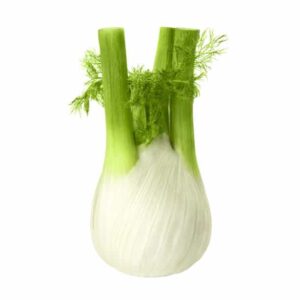 Antioxidant Properties
Antioxidant Properties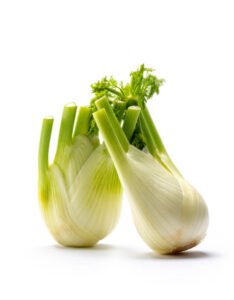 Digestive Health
Digestive Health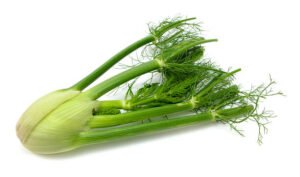 Potential Anti-Cancer Effects
Potential Anti-Cancer Effects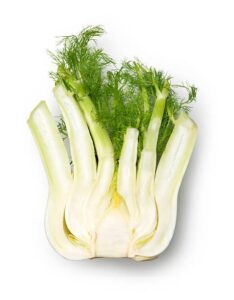 Anti-inflammatory Effects
Anti-inflammatory Effects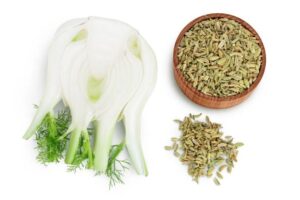 Regulation of Blood Sugar Levels
Regulation of Blood Sugar Levels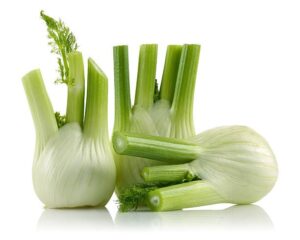 Respiratory Health
Respiratory Health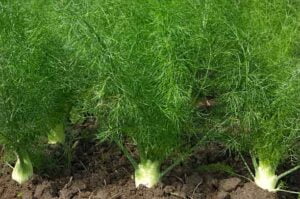 Bone Health
Bone Health